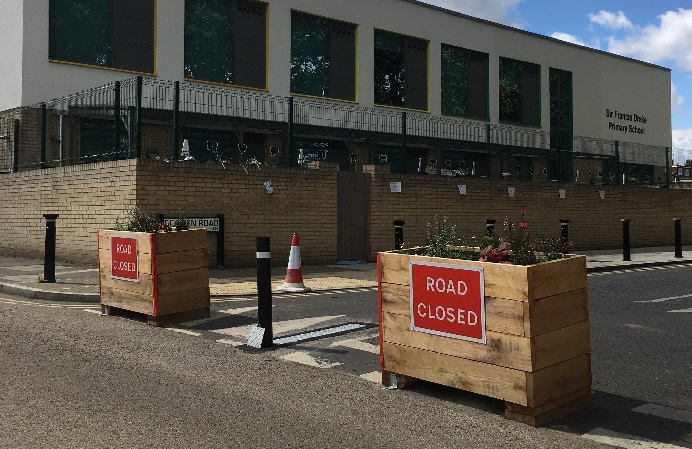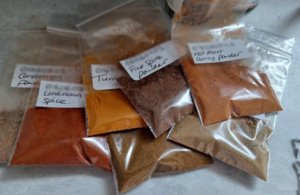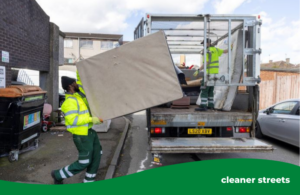A new online platform has been launched to help residents have their say on the borough’s trial low traffic neighbourhoods (LTNs).
People living in trial scheme areas are encouraged to visit the council’s Commonplace website and get involved. LTNs are a government initiative funded by Transport for London (TfL) and have been introduced in a number of boroughs across the capital.
The newly launched Commonplace platform gives full details of each LTN and the chance for residents to have their say on every aspect of the trial schemes.
Comments can be made on the project in general, likes or dislikes about a specific trial schemes or views on a particular traffic measure or filter in a single LTN. Interactive maps allow people to look in detail at the layout of each LTN and zoom in to see its key features.
Dropped pins mark all comments and feedback given, with these forming an overview of people’s feedback on each trial scheme. All views are anonymous.
Each pin is colour-coded depending on the nature of feedback allowing the council and local people to view first-hand how the schemes are being perceived.
Residents are encouraged to visit the Commonplace platform to find out more and to start giving their feedback.
The launch of Commonplace in Ealing is part of the latest stage of the ongoing consultation process with local people to gather real-time feedback about trial LTNs in the borough.
As part of this process, the council has confirmed that an interim assessment of each LTN will take place to understand whether any changes need to be made to improve the trial schemes and to ensure that feedback gathered in real-time is used to help shape the future of these projects.
Alongside feedback submitted by local people, data from traffic and local emergency services will be used to ascertain if and how the trial schemes can be improved. In some cases the council may be able to implement these changes for the remainder of the trials.
Before the end of each of the trials, people in each LTN will be encouraged to complete a survey in order that their views about the schemes can be gathered. At the same time, the council will also commission an independent organisation to carry out focus groups with residents and businesses in order to gather detailed feedback.
Each LTN will then be subject to a second, final assessment in the last month of the trial which will make a recommendation on whether to make it permanent.
This second assessment will take into account additional data gathered over a longer period, including air quality and impact on local businesses, as well as the feedback from residents over the entire trial period.
Julian Bell, leader of Ealing Council said: “We have launched our new Commonplace platform to give residents further opportunities to have their say on LTNs and help shape these trial schemes in real-time. I encourage everyone to have their say.
“LTNs are designed as part of our response to the COVID-19 pandemic to alleviate pressure on our roads and public transport. They aim to create quieter, safer neighbourhoods for local people, promote cycling and walking as an alternative to short car journeys and help us improve air quality in the borough and tackle the climate emergency.
“It has always been intended to closely monitor trial LTNs and where necessary make significant changes should there be negative impacts on local people.
“Each one is different and bespoke to the particular area it is in and we need to allow time for the trials to play out and the measures to settle in. Traffic is a very fluid entity, meaning that impacts can change and vary week to week, as drivers adapt their journeys.
“We recognise that there are strong opinions on LTNs, both for and against and although they were rapidly introduced to meet government funding requirements, we are fully committed to hearing everyone’s views during the trials. This is why we have also launched an interim assessment of our trial LTNs which will allow us to evaluate the data available at this point and improve schemes where there are significant concerns.
“This will take place ahead of a second assessment at the end of each scheme and the final decision whether to make each trial scheme permanent.”
Further information on LTNs
LTNs have been introduced as part of the council’s ongoing response to COVID-19 and the need for social distancing, as well as to help address the climate crisis.
The COVID-19 pandemic has caused a dramatic reduction in public transport capacity, meaning the number of people turning to their cars to get around has increased. This combination risks making local streets busier, more polluted and less safe for our residents if we do not find alternatives.
Reducing traffic across the borough also helps improve air quality and tackle the climate emergency. Almost 400 early deaths a year in Ealing are as a result of poor air quality and almost two-thirds of nitrogen oxides in the air we breathe comes from vehicle emissions – impacting on the health of Ealing residents and contributing to the climate emergency.
LTNs are designed to make it far easier for local people to walk and cycle, rather than use the car for short trips. They are being trialled in residential areas which are already either experiencing high levels of non-local traffic, including lorries and vans using these roads as short cuts, or are expected to see more traffic in the future.
Being more active as part of our daily lives is the easiest way to get fitter and healthier and to reduce additional health risks.
Active travel facts
- 63% of nitrogen oxides come from vehicle emissions, contributing to air pollution and global warming
- More than 30% of car journeys in Ealing are under 2 miles
- 84% of primary school and 57% of secondary school children live less than 1 mile from their school. That’s 20 minutes or less of walking
- 15% of non-local traffic disappeared from LTNs in Waltham Forest when they were introduced in the borough
- 1 in 5 adults in Ealing are physically inactive, doing less than 30 minutes’ exercise a week
- 387 early deaths in Ealing are caused by poor air quality
The assessment process and experimental traffic orders (ETOs)
TfL funding for LTNs is dependent on the council implementing the trial schemes between July and September 2020 as part of the response to the COVID-19 pandemic. Like other councils, Ealing uses ETOs to implement LTNs, which require a seven-day period of notice before a trial scheme is introduced. A trial LTN is typically in place for 6 months but is permitted to run for up to 18 months.
The interim assessment of each trial LTN has been introduced to help improve the schemes in real-time and respond to resident feedback and data available to the council at that point. Traffic measures introduced as part of trial LTNs are designed to be flexible and moveable and can be amended or removed as part of the trial to improve the scheme, if necessary.
Should the interim assessment of a trial LTN lead to very significant changes being introduced then this may result in the ETO being cancelled and a new ETO being implemented. In this case the LTN would be stopped and a new trial scheme started, commencing with the confirmation of the ETO and running for another six-month trial period.
At the end of the 6-month period for each low traffic neighbourhood, a second formal, final assessment will take place and officers will look at all the available data and views gathered over a longer period, before delivering a report to cabinet for consideration on whether each scheme should continue, be altered or stopped.
As each individual scheme started on different dates, they may not be considered all together but will go to the first appropriate cabinet meeting. Due to the postponed Mayoral and GLA elections, restrictions will affect when cabinet can consider these reports. It is expected that some reports will be considered after the elections.
Having your say
Anyone wishing to feedback about a trial LTN in the borough is encouraged to visit the council’s Commonplace website at https://ealingltn.commonplace.is/.
All queries regarding transport measures can also to be directed to the mailbox trafficnotices@ealing.gov.uk. A previous email address, COVIDtransport@ealing.gov.uk, is no longer be used. Any emails still sent to COVIDtransport will be automatically forwarded to TrafficNotices and dealt with regardless.
All feedback received so far will be review and considered as part of the interim assessment.





